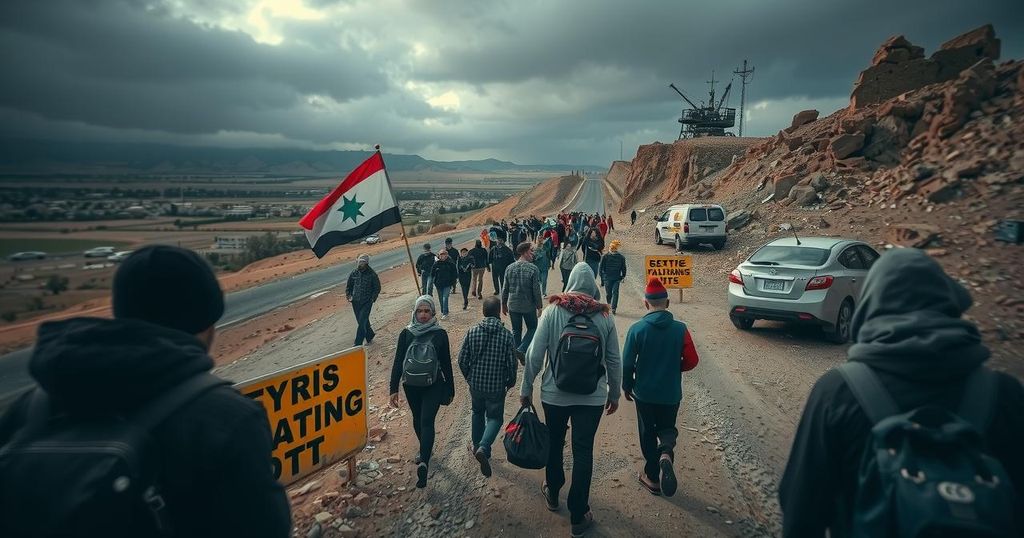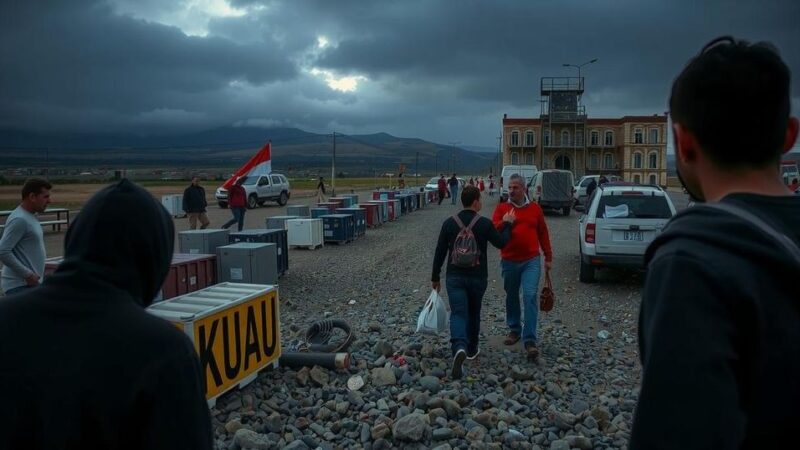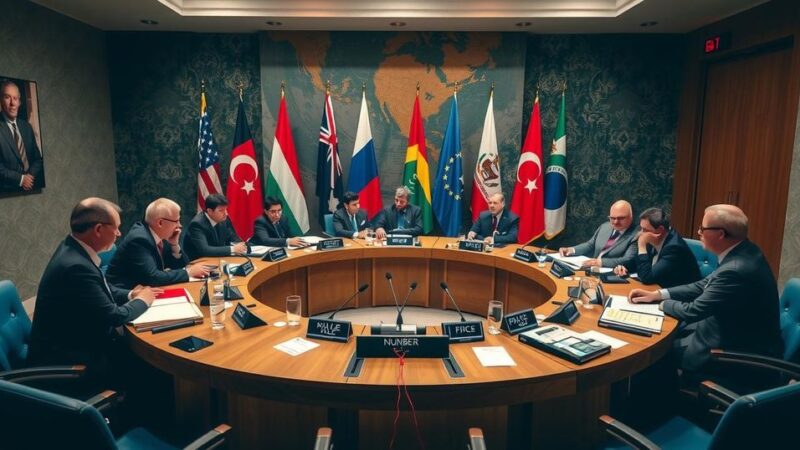Since September 23, 2023, nearly 472,000 individuals have fled Lebanon for Syria due to increased violence between Israel and Hezbollah. The UNHCR reports that among these, a significant percentage are minors. The ongoing conflict has resulted in numerous casualties, with Israel conducting daily airstrikes, particularly in southern Lebanon. The majority of refugees are returning Syrian nationals who had previously sought safety in Lebanon during its civil war.
According to a report from the United Nations High Commissioner for Refugees (UNHCR), approximately 472,000 individuals have fled Lebanon for Syria since September 23, 2023. This mass exodus follows an escalation in conflict between Israel and Hezbollah. The reported figures encompass 32,829 Lebanese refugees and 216,369 Syrian refugees who had previously sought refuge in Lebanon during its civil war. These Syrian nationals are now returning to their homeland in light of the deteriorating security situation in Lebanon. The majority of refugees have originated from southern Lebanon, where intense Israeli military operations are taking place daily. The ongoing conflict has tragically resulted in significant casualties, with the Lebanese Ministry of Health reporting that at least 2,897 people have lost their lives and 13,402 have sustained injuries since the conflict intensified. Among those fleeing are minors, who represent 60 percent of the refugee demographic, alongside individuals with special needs, disabilities, and chronic health issues. The Syrian government has maintained an open-border policy, facilitating entry through notable crossing points such as Jdaidet Yabous, Joussieh, Daboussieh, Jesr Al Qmar, and Al Arida. Israeli airstrikes have targeted border areas with Lebanon, damaging critical infrastructure and compelling refugees to traverse the border on foot, often while carrying their children and personal belongings. The tension ignited on October 8, 2023, when Hezbollah initiated rocket fire into Israeli territory in response to an earlier assault by Hamas on October 7, which resulted in the deaths of over 1,206 individuals, predominantly civilians, according to reports compiled by AFP. The ongoing military campaigns have resulted in overwhelming devastation, particularly in Gaza, where it has been estimated that Israeli actions have resulted in 43,314 Palestinian fatalities, the majority of whom also appear to be civilians, based on verifiable statistics from local health authorities. Israeli Prime Minister Benjamin Netanyahu recently visited the Lebanon border amidst the continued military operations against Hezbollah positions, while casualties from airstrikes near Sidon city were confirmed. In the face of this escalating violence, the refugee situation remains dire, with many seeking safety amidst the chaos. The international community closely observes the developing crisis, recognizing the urgent need for humanitarian assistance and resolution.
The current conflict in Lebanon is a continuation of longstanding tensions rooted primarily in the clashes between Israeli forces and Hezbollah, alongside the broader implications of the Israel-Palestine conflict. Since the Hamas attack on Israel on October 7, 2023, which prompted a severe military response, the situation has intensified, leading to significant civilian casualties and contributing to the wave of displacement from Lebanon to Syria. The UNHCR’s report sheds light on the pressing humanitarian crisis, particularly highlighting the vulnerability of minors and special-needs individuals among those fleeing. The open-border policy enforced by Syrian authorities has allowed for the influx of refugees, although conditions at border points have been complicated by ongoing military actions.
This report highlights the urgent humanitarian crisis resulting from the recent escalation of violence in Lebanon, with nearly half a million individuals fleeing to Syria amidst widespread bombardment and conflict. The demographic impact is significant, especially among minors, emphasizing the need for immediate international attention and support to address the humanitarian challenges faced by those affected. As the situation continues to evolve, the international community must remain vigilant and responsive to the needs of refugees and the broader implications for regional stability.
Original Source: english.alarabiya.net






